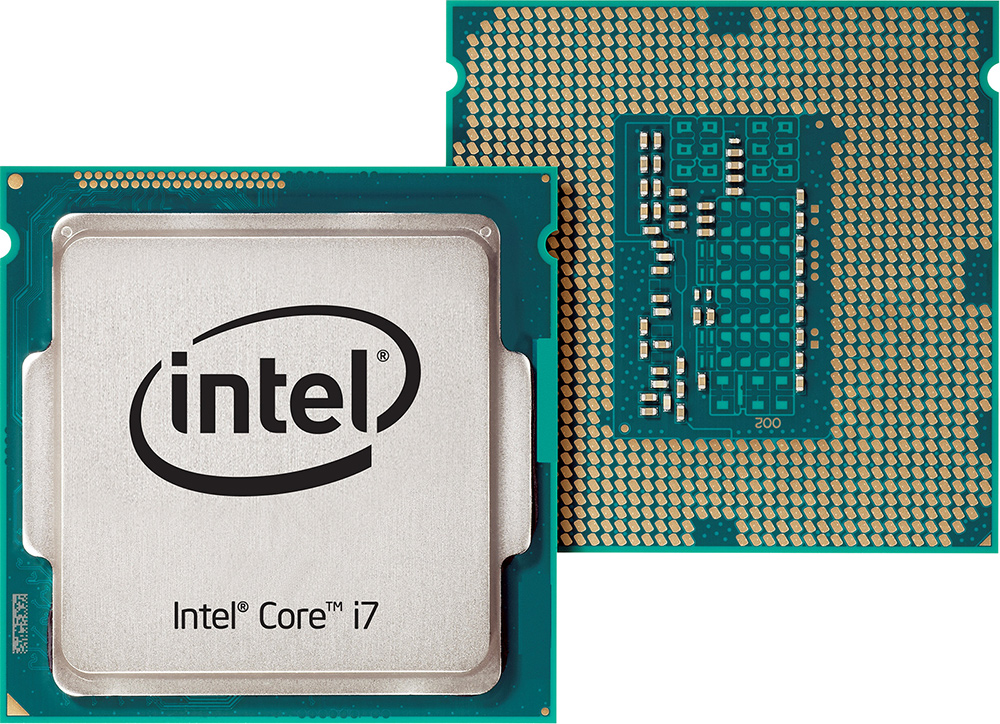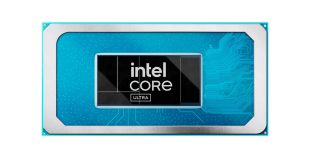Intel Corp.’s code-named “Skylake” processors may be significantly faster than existing chips at the same clock-rate thanks to architectural improvements, according to performance benchmarks of alleged engineering sample of the forthcoming CPU. If Intel manages to maintain current clock-rates with commercial “Skylake” chips, the latter could be significantly faster than existing offerings for enthusiasts.
Journalists from 3DCenter.org have found performance results of an unknown Intel processor identified as “Intel Family 6 Model 94 Stepping 1” in GeekBench 3's database. The central processing unit has four cores, supports Hyper-Threading technology and is believed to be an engineering sample of Intel's “Skylake” CPU. Just like previously surfaced “Skylake” chips, this one operates at relatively low clock-rate of 2.60GHz, which is typical for engineering samples. Usually such chips function without Turbo Mode.
Despite of the fact that the alleged “Skylake ES” processor operates at 2.60GHz and without Turbo Mode, its performance in GeekBench 3 is not dramatically behind that of Intel Core i7-4770K at 3.50GHz without Turbo. Moreover, the “Skylake ES” processor is ahead of the Core i7-4770T at 2.50GHz without Turbo, which means that the new chip has certain architectural advantages.

While it is hard to make conclusions about the “Skylake” micro-architecture based on a single benchmark result, it is pretty obvious that the future CPUs will be faster than the current ones at the same clock-rate.
While micro-architectural advantages of “Skylake” chips are undeniable, it remains to be seen whether Intel manages to maintain current clock-rates of enthusiast-class chips at 3.60GHz – 4.0GHz with its upcoming products. While “Haswell” processors featured certain advantages compared to “Ivy Bridge” CPUs, they operated at slightly lower clock-rates and therefore their real-world performance advantages over previous-generation processors were limited.
Intel did not comment on the news-story.
Discuss on our Facebook page, HERE.
KitGuru Says: The results of “Skylake” chips are clearly very promising. If Intel manages to release a 4GHz quad-core “Skylake” chip this year, then many enthusiasts may decide to upgrade.
 KitGuru KitGuru.net – Tech News | Hardware News | Hardware Reviews | IOS | Mobile | Gaming | Graphics Cards
KitGuru KitGuru.net – Tech News | Hardware News | Hardware Reviews | IOS | Mobile | Gaming | Graphics Cards




What ? No Major Improvement?
That is an incredibly tiny improvement. It feels like going from Ivy to Haswell. This will only make sense if Skylake draws little power, requires little voltage and outputs little heat, but those all remain to be seen. As-is, it’s nothing worth writing home for.
The single thread bench is of a slower CPU versus a faster one, and it’s barely better (2.5GHz 4770T vs Skylake ES). The best way they could have done this would have been to acquire a 4770K or 4790K and downclock them to 2.6GHz flat with turbo disabled, and then bench them that way. 100MHz in multithreaded benchmarks go long ways, and it looks like a pretty big cutoff point happened somewhere.
I’d like to see an actual apples-to-apples comparison. Devil’s Canyon refresh unlocked quadcore Haswell versus quadcore Skylake, with both CPUs locked at the same speeds. And more to that, I would like TDP readings taken via Intel XTU and HWiNFO to see which CPU requires more watts to do the same task. Especially moreso if we could get heat output in a controlled environment, like an air conditioned room running 25 degrees celcius 24/7, etc. Also, the same cooler and fan speed should be used for each chip.
Yes, I know, I’m extremely specific. But that’s how you do “apples to apples”.
Bigmouth intel –
I remember very well how much hype they created for ivy bridge then wat we got 10% performance with serious overheating
Then they market haswell as best cpu design nd wat we got again 10% improvment with thread scaling problem nd still some overheating
Same with broadwell……
Intel spends money to create hype and give us 10% extra and intel take from us 500$ coz they change socket every time
I hv sandy bridge i7 unloked nd working like chrm go to hell intel u cant fool me i update my pc after watching amd zen punch and ddr4 3200
Seriously in 2015 there is no point buying new cpu only fools or who need urgent will buy cpu coz we got ddr3 while in next yr ee will get ddr4 + better options like amd zen then ee will choos
I am looking at the chart, then at the article, then back to the chart, then the article again.
WTF ARE YOU TALKING ABOUT? WHERE DID YOU SEE THAT “significantly faster” YOU WRITE?
✔✔►make $14600 in 4 weeks@a19:
Going Here you
Can Find Out
►►►►►► https://standardcareerssystem98.com/get98/position98…
This info article is made on water and should end underwater. There is no performance improvement (not even notable) if you put chip@2,6GHz to a chip@2,5GHz with whole 13points gain (2864 to 2851). Dont do posts like this, pls. Just think before posting …
Definitely overhyped article. Single core performance per clock seems to be a few percent down. Still, the better multicore score is interesting.
Seems that my i7 3770K will be the next i7 920 for the next decade.
While I agree with what this person is saying, if they can’t learn to spell and use grammar, then they shouldn’t be commenting.
Obvious phone post
Phone post or not, learn to spell.
Cheers bro
My bad, will take cre next time
Not dramatically behind a 4770K at 3.5 with turbo boost disabled ? and the Skylake cpu may have had an unknown boost clock? That is supposed to be impressive? Looks like my 4770K @ 4.5Ghz should be good for a long time. Too bad Intel isn’t pushing CPU performance the way Nvidia and AMD have been pushing GPU performance. It seems like they are all about low power mobile devices now.
MODERATOR PLEASE CLEAN THIS CRAP
Me too looked the chart many times but can’t see where the performance that ” significantly faster than existing chips at the same clock-rate”
i7 4770T @ 2.5 Ghz Single core score – 2851
Skylake ES @ 2.6 Ghz Single core Score- 2864
i7 4770T @ 2.5 Ghz Multicore score – 10150
Skylake ES @ 2.6 Ghz Multicore Score- 11802
Skylake ES don’t have any notable performance difference which is disappointing. The advantage may be in lower power consumption due to usage of 14nm manufacturing node.
Flaged !!
Yeah, but Broadwell is 14nm already. That multicore performance improvement tells me it is going render videos slightly faster, but that’s about it. It’s generally not going to make run applications faster and nor is it going to help in games.
This just proves that there is no point in waiting for new hardware and suffer these days even when it’s only a week away. Life is short and one’s time is far too valuable to waste it on waiting for marginal improvements like this.
Also, Intel probably has better tech developed, but they’re waiting for AMD to put their cards on the table first. But that won’t happen until two years from now (ZEN architecture) so we’re probably not going to see a big leap until 2017.
100% agreed
No it won’t, I’m still on my i7 920. That processor is one of a kind 😉
I mean in terms of longevity, the i7 920 still a powerful CPU pretty much after almost 7 years after its release xD
1) it’s an ES sample
2) ~20% is notable.
3) The GPU will be considerably more powerful.
20% is good. Apparently there’s 64MB of L4 on some of the the chips as well.
Depends on what you figure is a long time.
Not on the chip, but on the package. Crystalwell is a separate die placed on the same package.